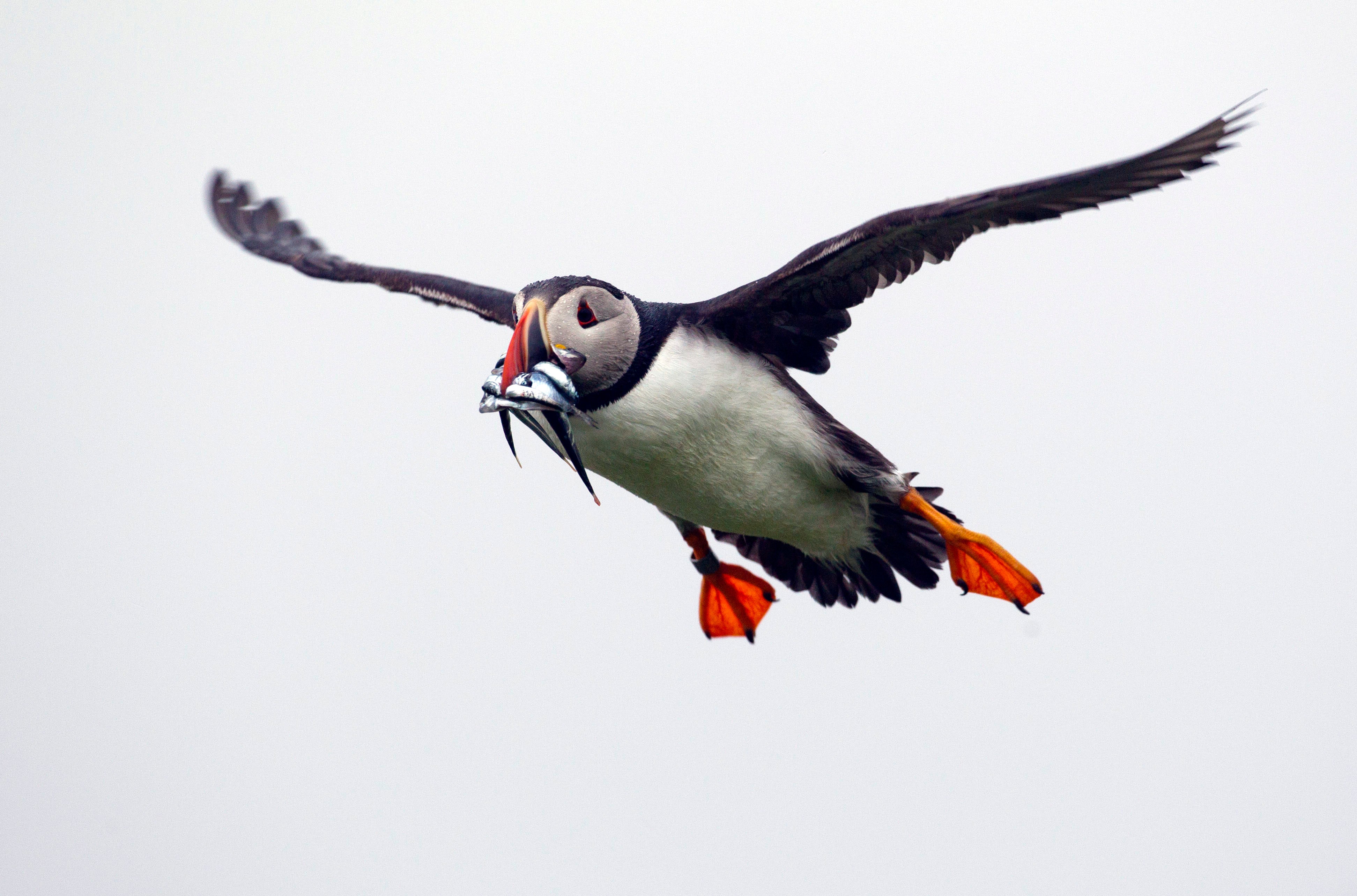Nothing funny about bad year for Maine's clownish puffins
Maine’s beloved puffins suffered one of their worst years for reproduction in decades this summer due to a lack of the small fish they eat

Maine's beloved puffins suffered one of their worst years for reproduction in decades this summer due to a lack of the small fish they eat.
Puffins are seabirds with colorful beaks that nest on four small islands off the coast of Maine. There are about 1,500 breeding pairs in the state and they are dependent on fish such as herring and sand lance to be able to feed their young.
Only about a quarter of the birds were able to raise chicks this summer, said Don Lyons, director of conservation science for the National Audubon Society’s Seabird Institute in Bremen Maine. About two-thirds of the birds succeed in a normal year, he said.
The puffin colonies have suffered only one or two less productive years in the four decades since their populations were restored in Maine, Lyons said. The birds had a poor year because of warm ocean temperatures this summer that reduced the availability of the fish the chicks need to survive, he said.
“There were fewer fish for puffins to catch, and the ones they were able to were not ideal for chicks,” Lyons said. “It's a severe warning this year.”
The islands where puffins nest are located in the Gulf of Maine, a body of water that is warming faster than the vast majority of the world's oceans. Researchers have not seen much mortality of adult puffins, but the population will suffer if the birds continue to have difficulty raising chicks, Lyons said.
The discouraging news comes after positive signs in recent years despite the challenging environmental conditions. The population of the birds, which are on Maine's state threatened species list, has been stable in recent years.
The birds had one of their most productive seasons for mating pairs in years in 2019. Scientists including Stephen Kress, who has studied the birds for decades, said at the time that birds seemed to be doing well because the Gulf of Maine had a cool year that led to an abundance of food.
The puffins are Atlantic puffins that also live in Canada and the other side of the ocean. Internationally, they're listed as “vulnerable” by the International Union for Conservation of Nature
Bookmark popover
Removed from bookmarks